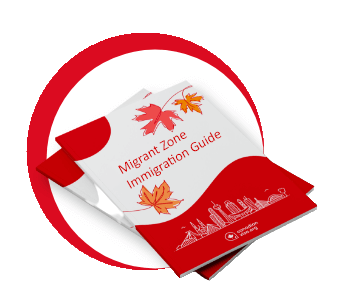Taxes are introduced to help the federal government develop and sustain sources that enable social and public services funding. Not only does taxation help the government fulfill the needs of its people, but whether or not taxes are used for the benefit of its citizens is a reflection of the government’s character - this fosters transparency and authenticity.
While the government requires the revenue, it is also essential to introduce reasonable tax rate levels and a tax base encouraging taxpayers to uphold their taxes. So, if you want to immigrate to Canada, you may wonder how the Canadian tax system works. For the sake of this article, let’s take a closer look at the Canadian tax system and how tax in Canada works.
How Does the Canadian Tax System Work?

Tax in Canada is mandatory for all citizens at the federal, provincial or territorial, and municipal (local) levels of government - which means all these governmental levels collect taxes.
For a better understanding, we have given you a breakdown of some of the common types of taxes in Canada:
- Income taxes
- Sales taxes
- Property taxes
- Health services taxes
Income Taxes in Canada
This type of tax is when citizens and businesses pay taxes to the government, which is calculated as an income tax they owe on benefit return and their income. This category can further be subdivided into:
Income Tax and Benefit Return
Canadian tax returns are forms completed annually to calculate how much they owe on their income. A return must also be completed as this will indicate federal and provincial or territorial benefits and credits. After that, you must submit your tax return to the Canada Revenue Agency. Note the amount of tax you pay will depend on your income and tax credits.
What are Tax Credits?
Any amount that decreases the taxes you owe is classified as a credit. For instance, if you owe the state $2000 and are eligible for a $2000 tax credit, your net liability will be zero.
Deductions and Credits: What’s the Difference in Canada?
There are two types of tax credits. These are as follows:
- Non-refundable tax credits: This tax credit reduces your paid tax to zero. However, you cannot claim a refund for the amount.
- Refundable tax credits: When the amount totals to more than the amount that’s due, or when no taxes is due as a result of deductions, amounting to zero - in this case, you can get a refund.
Sales Taxes in Canada
There are three types of sales taxes that exist in Canada. They can be divided into three categories:
Goods and Services Tax (GST)
This is when you pay a federal tax on goods and services you purchase based on the GST law in that country, which will have the same rate throughout the country.
Provincial Sales Tax (PST)
This is a tax charged by some provinces, and the charge will vary from province to province.
Harmonized Sales Tax (HST)
Like the PST, this is also a tax charged by some provinces. However, these provinces form an amalgamation of the GST with the PST to form the HST.
Property Taxes in Canada
This is when Municipal (local) governments decide the tax rate based on land value and buildings.
Customs Duties or Tariffs in Canada
Suppose you’re conducting business and importing or exporting goods or products; you will be charged taxes by the federal government on certain imported or exported goods.
Health Services Taxes in Canada
While health care systems may vary in different provinces/territories, they are accountable for managing their own health care system. Depending on the services, some provinces/territories could charge extra to access the services.
If you'd like to have a better understanding of taxes in Canada or if you're an investor who wants to invest but is unsure of the requirements, speak to our immigration experts who are well-equipped with the latest trends, rules and regulations around the Canadian economy.
How the Canadian Government Uses Taxes

When a province or city’s people see delivery on services through their tax monies; this encourages them to continue paying the tax due to the government’s transparency.
According to the official Canadian government site, below are the public facilities, programs and services that the Canadian government pays with taxes:
- Education and schools
- Healthcare and hospitals
- Roads and bridges
- Police, ambulance, and fire services
- Libraries
- Parks and playgrounds
- Arenas
- Swimming pools
- Garbage and recycling collection
- Economic development
- Wildlife conservation
- National defence
Additionally, the taxes you pay also help with social programs and benefits such as:
- Underprivileged families with low incomes
- Students who may require funding
- Elderly (65 years and older)
- People with disabilities
According to the official Canadian government site, an employee who pays taxes on their earnings will be contributing towards social programs, like:
- Employment Insurance (EI)
- The Canada Pension Plan (CPP)
- The Quebec Pension Plan (QPP)
- The Quebec Parental Insurance Plan (QPIP)
Note: These monies will be deducted automatically to make contributions to these programs in your name. Remember, self-employed persons must pay taxes on both the employee and employer to make these contributions towards social programs.
Canadian Taxation Explained
We have provided you with the ins and outs of Tax in Canada. However, if you’re thinking about immigrating to Canada, we urge that you conduct the necessary research on the province’s or city’s tax system and rates before you settle in Canada.
Our immigration experts are well-equipped with the knowledge and experience about Canadian taxation and guide and advise you through your immigration journey. Get in touch today!
FAQs
How does Inflation Affect Tax Rates?
This can cause higher income tax brackets or reduce tax credits, deductions, and exemptions. Soon, this will lead to people paying more taxes on their income without an increase in real income.
What are the Three Main Types of Taxes in Canada?
- Income taxes
- Sales taxes
- Property taxes
Is Tax Higher in Canada or UK?
You pay fewer taxes in Canada than in the UK. However, you can learn more about the tax rates with our immigration experts.




